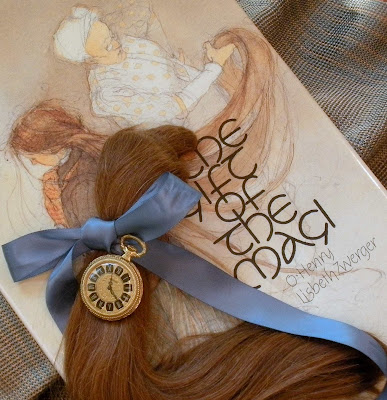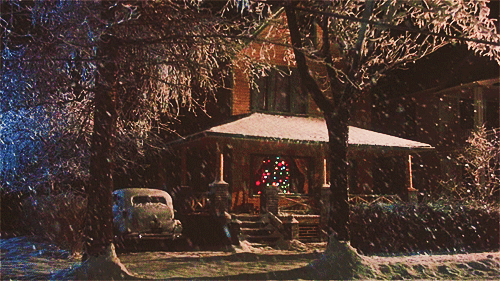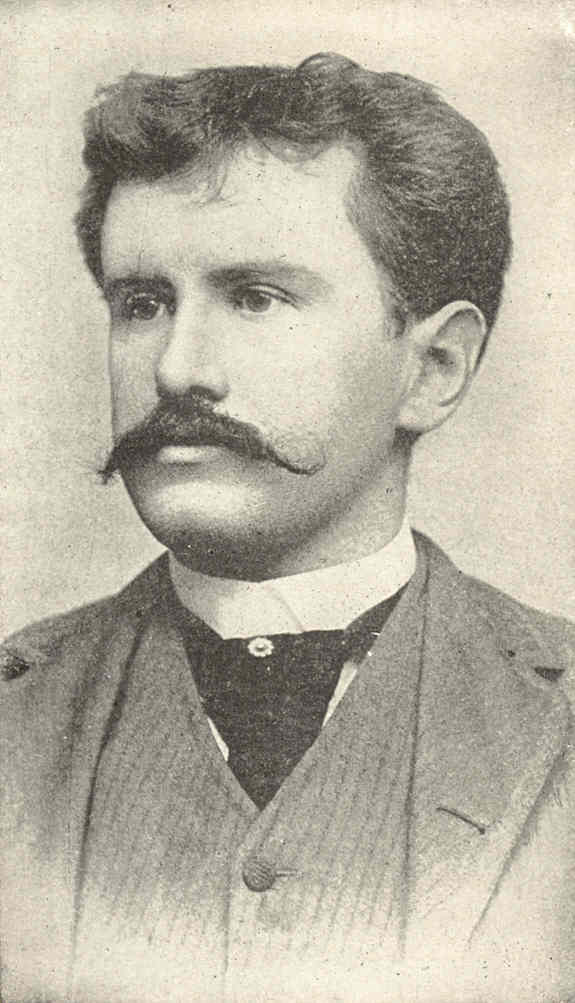The author uses such
graphical means as capitalization: “ONE DOLLAR AND EIGHTY-SEVEN CENTS.
THAT WAS ALL. AND SIXTY CENTS of it was in pennies”. It is used to draw reader’s
attention to the main problem of this family – a great lack of money. The usage
of the pronoun “one” instead of “her” in the sentence: “Pennies saved one and
two at a time by bulldozing the grocer and the vegetable man and the butcher
until one's cheeks burned with the silent imputation of parsimony
that such close dealing implied” gives an utterance a more general character
and emphasises Della’s mood when she had to ask money, what was really hard for
her and she found herself in an unpleasant situation. There is also an epithet:
“silent imputation of parsimony”. It shows that Della has strong spirit: she is
“bulldozing” but at the same time she is gentle. The inversion: “Three times
Della counted it” underlines how thrifty and careful she is. Moreover, there is
a constant repetition of the phase: “one dollar and eighty-seven cents” which emphasizes
Della’s hopelessness. A repetition of adjectives “grey”: “…looked out
dully at a grey cat walking a grey fence in a grey backyard” helps to create dull
and sad atmosphere. Anticlimax: “life is made up of sobs, sniffles, and
smiles” describes the reality of life”. Another epithet: “beggar description”
which is the combination on N1+N2, where N1 performs the function of an
adjective and describes the flat in which the Dillinghams lived and shows their
poverty. The periphrasis: “mortal finger” stands for “person, human being”. It
emphasizes that the family feels the pinch. Archaic usage of “thereunto” means
“to that”. The author uses metonymy in the case when the surname “Dillingham”
substitutes the word “card with the surname”. “Her Jim” is a nominative
sentence which increases the dynamism and flow of Della’s thoughts. The usage
of article “a” together with a noun with an adjective: “Many a happy hour she
had spent planning for something nice for him” add emotional stylistic coloring
and emphasizes Della’s worrying about the present for her beloved Jim because
with the help of it she wanted to show her devoteness to him. This is also a
case of inversion: the adverbial modifier is placed at the beginning of the
sentence. In the following sentence the case of inversion can also be noticed:
“Rapidly she pulled down her hair and let it fall to its full length”. It
underlines how Della react and her wish to act as quickly as possible.
The author mentions that the
couple, James and Della, took “mighty pride” in their possessions. This is a bright
case of hyperbole which is used to underline the real value and importance of
their belongings for them. There is a case of an allusion from the Bible about
Queen of Sheba and King Solomon and their wealth, jewels and gifts which are
nothing in comparison with Della’s hair and Jim’s watch. Inversion is used in
the following sentences: “Had the Queen of Sheba lived in the flat across the
airshaft, Della would have let her hair hang out of the window some day to dry
just to depreciate Her Majesty's jewels and gifts. Had King Solomon been the
janitor, with all his treasures piled up in the basement, Jim would have pulled
out his watch every time he passed, just to see him pluck at his beard from
envy”. In such a way authors tries to show how proud the Dillinghams where of
their possessions.
The story is the 1st and 3rd
person narrative. There are also elements of description. The main characters
(protagonists) of the story are Jim and Della Dillingham. The secondary
character is Madame Sofronie, an owner of a shop. Jim and Della are also named
as: James Dillingham Youngs – the compound name for the family as one unity of
a husband and wife. Della is described realistically. She behaves as an average
woman and she is full of emotions which the author describes with the help of such
stylistic device as metaphor:“There was clearly nothing to do but flop down
and… howl. So Della did it”. Della has nothing to do but howl – dolefully
like a wolf.
Jim is a quite reserved, calm
and restrained man. The case of periphrasis in naming Jim “lord of the flat” emphasizes
that it was he who was the only breadwinner in this family; “employment of all
the comforting powers” is the periphrasis which means that Della really needed
Jim to hug her and comfort, to calm her down. Maybe, she needed him more than
he needed her. Madame Sofronie is rather tightlipped. She has “a practised
hand” in cutting hair, this is the case of epithet. She is “large, too white,
chilly, hardly looked”. The usage of the noun in plural: "Take her hat off
and let's have a sight at the looks of it” adds intensification.
Simile is used to describe
Della’s greatest possession - her hair: “Della’s beautiful hair fell like a
cascade of brown water”. Her hair is a wavy as it is like a cascade, its colour
is like brown water.
To emphasize the repeated unit
the author uses the anaphora: “On went her old brown jacket; on went her old
brown hat”. It used to show that Della was self-assured and she exactly knew
and was sure in what she was doing.
The
metaphor: “tripped by on rosy wings” describes Della’s feelings and mood. She
was happy and ready to find the best present in the whole world for Jim. The
fob that Della buys has “meretricious ornamentation” – epithet, used to
describe the beauty of her present, but at the same time it was valuable and
simple: “Quietness and value--the description applied to both”. Inversion in
the sentence: “Twenty-one dollars they took from her for it, and she hurried
home with the 78 cents” helps to show how unwilling Della was to give money,
how thrifty she was. She would have better bought Jim a new overcoat and gloves
– a practical thing, but she was a romantic figure, she valued Jim and she
wanted to give him something special. She simply loved him and behaved as a
woman in love. The usage of oxymoron “properly anxious” underlines that this
fob is also a practical thing. Inversion: “Grand as the watch was”
emphasizes the refinement of it.
The author uses a comparison:
“That made her looks like a truant schoolboy.” After having had her hair cut
Della can be compared in her appearance to a truant schoolboy: wandering and
straying. She doesn’s think about her appearance. She just does her best to
make Jim happy. Short hair gave her the look of a boy, not of a woman, her look
was deprived of femininity.
With the help of gradation the
author describes Della’s looking in the glass: “She looked at her reflection in
the mirror long, carefully, and critically”. Probably she hadn’t yet realized
what she had done. Della somehow tries to comfort herself.
Della is rather nervous when she
is waiting for Jim. She is saying “the little silent prayers” – epithet. Jim’s
reaction to the new Della’s style is described with the help of simile: “Jim
stepped inside the door, as immovable as a setter at the scent of quail”. He
was tired after work and this simile underlines his seriousness and shock. But
he didn’t say a word to cheer her. There is an example of repetition of the
negative particle “not” to describe Jim’s shock when he saw Della: “It was not
anger, nor surprise, nor disapproval, nor horror, nor any of the sentiments
that she had been prepared for”. Here is also anticlimax (nouns “anger –
surprise – disapproval – horror”) to describe Della’s relief from Jim’s
reaction. The overflow of Della’s emotions is described with the help of
oxymoron: she said that her hair grows “awfully fast”. Antithesis is used by
the author to describe opposing feelings: “And then an ecstatic scream of joy;
and then, alas! A quick feminine change to hysterical tears and wails”.
Jim’s fatigue has nothing to
do with his surprise, it is “the hardest mental labour for him” – the case of
epithet. It helps to emphasize Jim’s shock. Della talked to him with “serious
sweetness” – oxymoron, used to stress Della’s wish to calm Jim down and at the
same time not to irritate him. But Jim remains strict.
Jim’s release from his trance is
indicated by repetition of the conjunction “or” in the sentence: “I don't think
there's anything in the way of a haircut or a shave or a shampoo that could
make me like my girl any less”. With the help of epithet Della’s vanished hair
is described as “coverted adornments”, to emphasize that now when she got those
combs she lacked her hair, now it seems even more precious for her than those
combs.
“Della leaped up like a little
singed cat” is simile which is used to describe Della’s swiftiness. Graphon is used
in the sentence: “"Dell," said he, "let's put our Christmas
presents away and keep 'em a while” emphasizes Jim’s psychological
condition and unstability, he understood the whole trick.
Speeches in this story let us feel
a particular relief as they are like bridges from what we think may happen next
to what is the way out and solution of a certain unexpected twist or
problem. Speeches are direct as they are presented in the form of a dialogue
and inner (interior monologue) as they present the characters’ thoughts, ideas,
beliefs and views. There are also cases of indirect speech which is transformed
by the author. Also inserts of author’s
speech.















